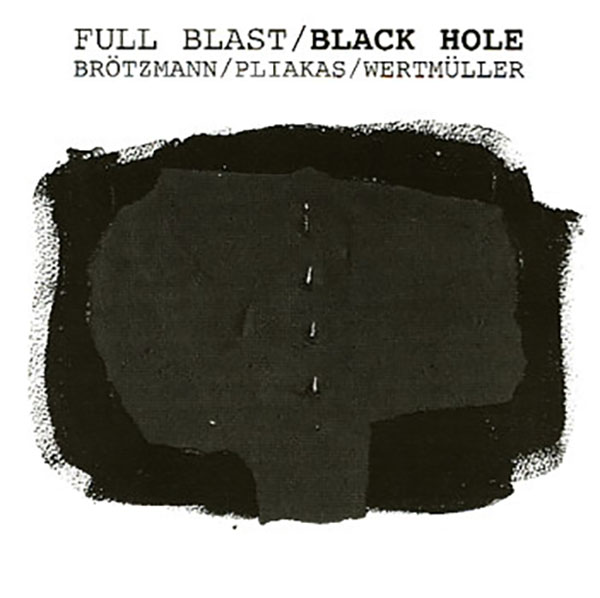
by Tim Owen
May 23, 2009
/ ALBUM
A dynamic and exciting product from one of the music's true pioneers, still restlessly pushing forward.
Peter Br?tzmann has been such a key figure in Jazz for so long, his sound so instantly recognisable, that it’s almost a reflex when contemplating a new release to wonder how well it will stand up alongside cornerstone recordings such as Chicago Octet/Tentet and Little Birds Have Fast Hearts, let alone an established classic such as Machine Gun.
Two tracks into this, the second CD from his Blast First trio, Br?tzmann provides an answer by picking up his clarinet. After a blustering opening number that does little more than deliver the anticipated Br?tzmann in a slightly new context, his horn skating over the fractious intensity of Marino Pliakas’ electric bass and Michael Wertmuller’s drums, this track, Suzy, makes Blast First sound less predictable. It’s a welcome reminder of the subtlety that Br?tzmann routinely displays on his solo and duo recordings; a subtlety that his presentation - everything from the dark monochrome art that Br?tzmann himself creates to adorn his packaging to his personal physical solidity, the Teutonic beard, the iron lungs, the inescapable legacy of those cornerstone early 70s recordings (Nipples, Fuck da Boer) - tends to obscure. Although occasional moments in tracks such as Atlas have a post-Ayler quality that Br?tzmann’s followers will have come to anticipate, his approach to the clarinet throughout this recording is fresh and compelling. Most importantly, by limiting his saxophone outings Br?tzmann allows this music space to breath and enables Blast First to forge a distinct identity. Black Hole is no classic, but it is a worthwhile addition to the Br?tzmann canon and may appeal to new listeners. Certainly the instrumentation and biting attack of the group may appeal to rock fans who might find the Chicago-based large ensembles Br?tzmann leads too dense and plain damn jazzy to handle.
Don’t think, however, that the Blast First rhythm section are in any way two-dimensionally rockist. Bassist and drummer mesh supremely well, such that Br?tzmann initially seems in danger of sounding like a guest on his own recording. Again, it’s the more discursive tracks that tend to engender a unique group sound. Pliakas may set his electric bass thrumming at speed metal velocity, but his touch evokes the woody, resinous sound of the classic jazz double bass, drawing from his steel strings a sound more like that of catgut. The bass is not appreciably louder in the mix than acoustic basses tend to be, so it’s testament to the innate muscularity of his playing that Wertmuller’s roiling intensity doesn’t drown him out. Wertmuller supercharges the more full-throttle tracks and even though, as I’ve hinted, there is much light and shade across the eleven mostly short tracks ton the album, his incandescence keeps the overall intensity of the session stoked, instantly reversing the few intimations that the albums forward trajectory may ebb.
While many Br?tzmann releases require considerably more time and effort, the brevity of these tracks - more than half are less than four minutes long - allows the band to modulate the session and shape a satisfying sequence for the CD. The longest piece by far, Protoneparcel is a study in reigned-in tension, as it accretes density, drops away to an electro-acoustic thrumming, and builds again; its power surges suggest a fitting central metaphor for the whole, which the track titles both obliquely (Alice, which may be a reference to the experiment in relativistic heavy ion interactions, and Ellis, in tribute to John Ellis of CERN, perhaps?) and obviously (Black Hole, Higgs, Large Hadron Collider) suggest as a reflection on particle physics.
As I said above, this isn’t classic Br?tzmann. Having seen the trio in performance last year (as reviewed elsewhere on this site) the production of these studio sessions lacks the immediacy that makes the trio so thrilling live. But it is nonetheless a dynamic and exciting product from one of the music’s true pioneers, still restlessly pushing forward.
blog comments powered by Disqus